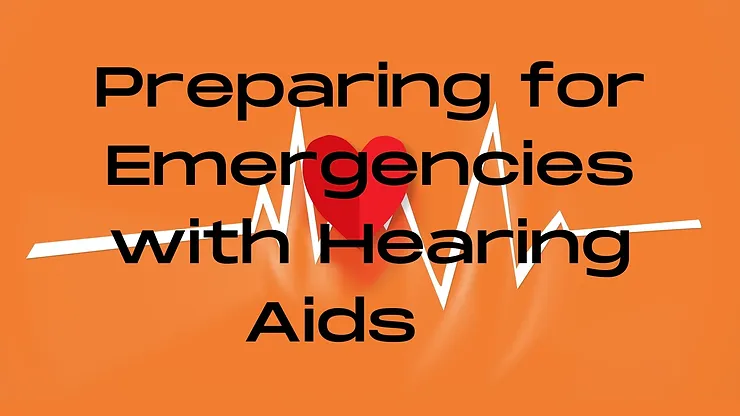
For those with hearing loss, emergencies pose a great concern. We tend to use our hearing as the first line of defense against threats that cannot be seen. Whether it is the rustle of leaves in the woods, a crack of thunder in the distance, or simply the sound of something happening behind our heads, we use our ears to alert our minds to a potential threat. We can even use our ears as an emergency alert system while we’re sleeping.
Though the eyes might be closed during sleep, our ears remain ready to summon the brain from sleep if a sound causes alarm. However, those with hearing loss might be concerned about their ability to hear these potential threats. Sonic alarms are the most common form of the emergency response system, so more advanced technology is necessary for those with hearing loss. Let’s consider a few important steps to prepare for emergencies if you have hearing loss, particularly if you use hearing aids to assist you.
Emergency Preparation Kits
Any emergency specialist will tell you that planning is the key to success when you face a natural disaster or other alarming situation. Those who encounter emergencies of these kinds will be relieved to know that they have all the necessary preparations in place prior to the event, setting your mind at ease. If panic strikes in an emergency, having supplies prepared and ready in a convenient location will make it possible to immediately grab that bag or resource before you even think about it.
If you use hearing aids, be sure to include all the necessary components in your emergency preparation kit. For many people this will mean including some spare batteries for hearing aids, maintaining assistance during the disaster or other events. For those who use rechargeable hearing aids, you might want to invest in a portable charging pack like those used during camping. Some of these use solar power, while others store a charge and can serve as a power outlet or USB charging station when the power goes down.
You will also want to include a communication device in your emergency preparation kit. For many people, this device might be a satellite phone or at least a transistor radio, but both of these technologies rely on hearing ability. If you have profound hearing loss or total deafness, devices are available that convert voice-to-text that can be used to communicate with emergency authorities during a disaster or other event.
Visual Alarm Systems
If you live in an area prone to hurricanes, tornadoes, or other natural disasters, you might be familiar with the sound of the emergency broadcast system. That common refrain is used to get your attention prior to an emergency event, providing you with essential information. However, that sound is not accessible to those with hearing impairment or hearing loss. Take the opportunity before a disaster strikes to get an emergency alert system for those with hearing impairment. These systems tend to use a network of flashing lights placed around the home or place of business in order to get your attention.
Fire alarms are available with his visual capacity, as well. For many people, smartphones have become their best piece of assistive technology. Particularly those with hearing aids that sync with Bluetooth connectivity can benefit from emergency alerts that go directly to their devices. Although these sources of emergency alert might not work to rouse you from sleep, they can be the most valuable way to get information in an emergency event.
Planning for an emergency has the effect of alleviating anxiety and providing you with the tools you need to be successful should an event occur. If you have hearing loss or use hearing aids, your support network of friends, family members, loved ones, and community members will be a crucial source of assistance in the event of an emergency.
Take a moment to make a plan together, particularly if you know that your area is prone to a certain type of severe weather or other emergencies. When you have a solid plan in place, you can set yourself up to weather the storm with ease and all the resources necessary.
If you are struggling with hearing loss, one of the best ways to stay prepared is to seek treatment! Contact us today to schedule a consultation.
